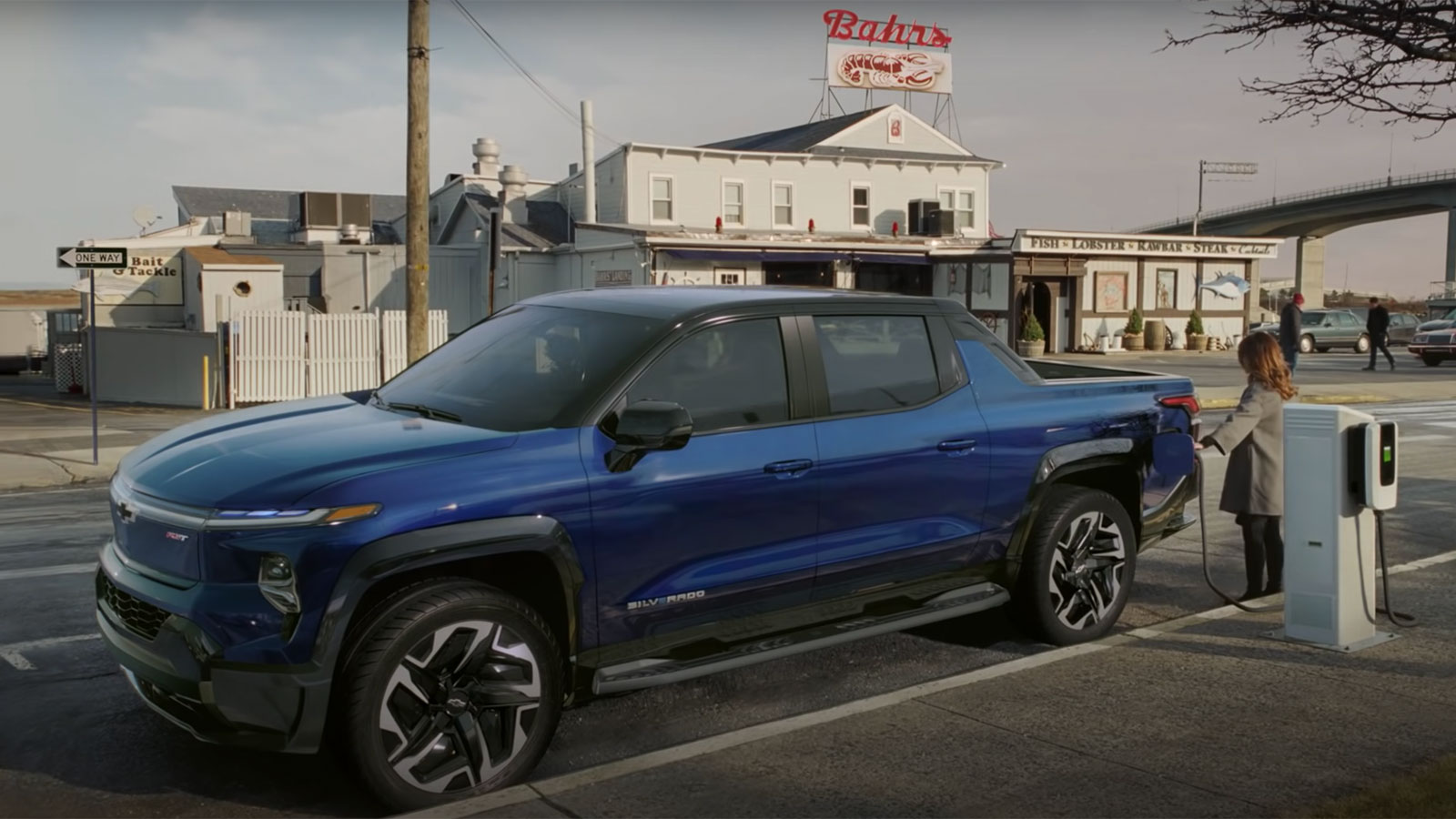Every year, companies debut their best ads during the Super Bowl, hoping to convince millions of Americans they know exactly what the country needs. Last night’s celebrity-studded commercials sent a clear message: It’s time to buy an electric vehicle — preferably a large one, like a truck or SUV.
General Motors, BMW, Chevrolet, and Kia peddled EVs using advertising’s crowd-pleasers, celebrities and cute animals. The implication was that electric cars aren’t just for environmentalists or rich Tesla drivers anymore. They’re going to become the new normal.
While EV sales have grown in the U.S. in recent years, fewer than 1 percent of vehicles on the road today are electric. Shifting from gas-powered cars to electric ones has become a priority in tackling climate change, as transportation is currently the largest source of greenhouse gas emissions in the U.S., with the majority of that coming from passenger cars and trucks. The country’s infrastructure doesn’t make owning an electric car easy, but President Biden has promised that 500,000 charging stations will be built all over the country (assuming Congress plays along).
“We still need to continue work on that idea of normalizing EVs and help Americans across the country actually see themselves in one,” Deborah Wahl, GM’s Chief Marketing Officer, said during a media briefing ahead of the Super Bowl.
GM’s Super Bowl commercial leaned into Austin Powers nostalgia, with Dr. Evil, renamed Dr. EV-il. His gang decided to take over GM to take on climate change (which has out-eviled them as the greatest threat to the world). The spot was part of the company’s marketing around its plans to roll out 30 new types of EVs by 2025.
On the other end of the spectrum, an ad from Chevy stood out simply by being so low-key and understated. It shows Jamie Lynn-Sigler of Sopranos fame driving a blue, all-electric Silverado truck on the highway around gritty New Jersey, flashing past the Statue of Liberty, playgrounds, and a butcher shop before stopping to fuel up at a charging station.
Such ads used to be relatively rare, with only three total Super Bowl commercials touting EVs from 2010 through 2019. But that began to change two years ago during the ads for Super Bowl LIV, when Lebron James promoted GM’s electric Hummer, Porsche’s electric Taycan sped through German streets, and Audi invoked both Frozen and Game of Thrones to draw attention to its e-Tron Sportback. During last year’s game, Will Ferrell, in an ad for GM, punched a globe because he was angry that Norway had a higher number of EVs per person than the U.S.
With electric cars showing up in at least a half-dozen ads during this year’s Super Bowl, it seems that carmakers no longer worry that EVs aren’t tough enough to market during the biggest game of football. In fact, only a couple of commercials specifically advertised a gas-powered vehicle this year. Even Nissan’s commercial for its gas-powered Z sports car, driven by Eugene Levy, featured a cameo of its all-electric Ariya, driven by Catherine O’Hara, his longtime comedy partner.
Celebrity appearances were a big theme this year, with one commercial starring Arnold Schwarzenegger as a retired Zeus, former Greek god of the sky, who gets cheered up by an electric BMW iX crossover SUV.
Kia’s ad took a different approach, with an adorable robo-dog chasing the EV6 SUV.
A Super Bowl debut from the startup Polestar went the minimalist route, flashing plain white text over a black screen and pushing back at the tradition of flashy car commercials (“No epic voiceover”). It made some not-so-subtle digs at its competitors, including Volkswagen (“No dieselgate”) and Tesla’s Elon Musk (“No conquering Mars”).
Tesla, the biggest seller of electric vehicles in the U.S., was otherwise nowhere to be seen during the Super Bowl ad blitz. The luxury car company is sticking to its decade-long strategy of no advertising, relying on word of mouth instead.



